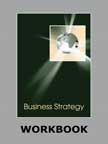Alex Ferguson: A Leader who Inspired Performance
|
|
ICMR HOME | Case Studies Collection
Case Details:
Case Code : LDEN082
Case Length : 24 Pages
Period : 1974-2012
Pub Date : 2012
Teaching Note :Not Available
Organization : Sir Alex Ferguson, Manchester United Football Club
Industry : Sports
Countries : UK
To download Alex Ferguson: A Leader who Inspired Performance case study
(Case Code: LDEN082) click on the button below, and select the case from the list of available cases:

OR

Pay through PayPal
|
Price:
For delivery in electronic format: Rs. 500;
For delivery through courier (within India): Rs. 500 + Shipping & Handling Charges extra
» Leadership and Entrepreneurship Case Studies
» Case Studies Collection
» Leadership and Entrepreneurship Short Case Studies
» View Detailed Pricing Info
» How To Order This Case
» Business Case Studies
» Area Specific Case Studies
» Industry Wise Case Studies
» Company Wise Case Studies
Please note:
This case study was compiled from published sources, and is intended to be used as a basis for class discussion. It is not intended to illustrate either effective or ineffective handling of a management situation. Nor is it a primary information source.
Chat with us

Please leave your feedback

|
|




<< Previous
Background Note
Ferguson was born on December 31, 1941, in Scotland. His father, Alexander Beaton Ferguson, worked in the shipbuilding industry. While working as a tool-worker in Clyde Shipyard, Ferguson started his soccer career as a striker at the age of 16 at Queen's Park Football Club in the year 1957. After two years, he moved to St. Johnstone Football Club (SJFC) based in Perth, Scotland. He was recognized as a professional footballer after he joined Dunfermline Athletic Football Club in 1964.
|

|
In 1974, Ferguson told the manager of Ayr United Football Club that he wanted to get into training and managing players. The manager communicated this to the director of another football club, East Stirlingshire Football Club (East Stirlingshire). The director of East Stirlingshire met Fergusson and was impressed by his sincerity, confidence, and knowledge. Ferguson was appointed as the club's manager.
Ferguson was 32 when he joined East Stirlingshire, and he worked part time for the club. After five months, he joined St.Mirren Football Club. When he first joined St. Mirren, the club was at the bottom of the second division11. It had only eight players. Ferguson immediately brought in several young players. Five months of his joining the club, it went up to the third position in the Scottish league. Ferguson led St.Mirren to its first win over another Scottish football club, Falkirk in 70 years. Though he was successful in placing St. Mirren among the top clubs in the Scottish First Division, the club sacked him for what it described as 'intimidating behavior'.
FFerguson then joined Aberdeen Football Club (Aberdeen) in 1978. In 1982-83, Aberdeen won the European Cup Winner’s Cup against Real Madrid and the UEFA Super Cup in 1983-84. For three years, the club won the Scottish Football Association cup, the Scottish Premier Division for two years, and the Scottish League Cup. In 1985-86, Ferguson was also a part of the Scottish national team's coaching staff. He became manager of the team after its earlier manager died on the field. Ferguson stepped down from the post when the Scottish team failed to qualify beyond the group stages of the 1986 World Cup.
Ferguson's success with the Aberdeen team attracted the attention of several top football clubs in England like North London Giants, Tottenham Hotspur Football Club, and Arsenal Football Club (Arsenal). At the same time, MUFC was also looking for a replacement for Ron Atkinson, who had been sacked as manager in November 1986.
Excerpts
- Next Page>>
|








